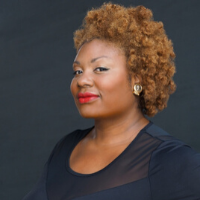Meet our Fall 2020 Artists
/Our Fall 2021 concert is like no other we’ve presented before. Soloists and chamber ensemble will be live on stage, amply spaced. Choir members will be seen by the audience via screen as a part of the multimedia performance, merging live and pre-recorded sections. Tickets for the live stream are now available.
The piece is one commissioned by St. George’s Choral Society—Phillip Martin’s Missa Brevis.
Meet the composer and the four soloists who will premiere this exciting new composition:
Phillip Martin
Phillip Martin studied composition at the University of Michigan with Leslie Bassett and William Albright and at the University of Denver with Normand Lockwood. His music strives to build on traditions of the past, interpreting these traditions in modern, inventive ways. Martin served as composer-in-residence for Hartford Opera Theater (HOT), which presented two of his operas at their annual New in November festival. HOT also premiered his opera Tom Sawyer at the Mark Twain House as part of their centennial commemoration of Mark Twain’s death. Martin “has a masterful way with music, which tends to build intense feelings and draw the listener into the drama of opera.” (Hartford Courant) Martin also writes chamber music (particularly for cello and piano), choral music, and film scores. Originally from Spartanburg, South Carolina, Martin now lives in Scarsdale, New York. He served as Chief Technology Officer of the hedge fund Gargoyle Group and has recently joined Fortium Partners, which provides on-demand technology leadership.
Meg Dudley
Hailed for her “sparkling voice” (Opera News) and “full-toned soprano” (New York Classical Review), Meg Dudley has established herself as a versatile vocal artist in a variety of genres. Recently, Ms. Dudley has been a featured soloist in Carnegie Hall (Dan Forrest’s Lux, Vivaldi’s Gloria, Haydn’s Mass in the Time of War and Lord Nelson Mass), in Lincoln Center’s Avery Fisher Hall (Vaughan William’s Mass in G Minor and Leonardo Leo’s Magnificat), with the Boston Symphony Orchestra (Puccini’s Suor Angelica and Debussy’s Nocturnes), and A Far Cry Chamber Orchestra (Kareem Roustom’s Hurry to the Light). A highly sought-after ensemble singer, Ms. Dudley works regularly with the Lorelei Ensemble (core member since 2017), Conspirare, the Santa Fe Desert Chorale, the Choir of Trinity Wall Street, The Crossing, the New York Philharmonic, the American Classical Orchestra, Oregon Bach Festival’s Berwick Chorus, and the Bard Festival Singers. Ms. Dudley holds a BM from the University of Denver and a MM from Mannes School of Music.
Heather Petrie
Hailed as “a true contralto, with a big, deep, resonant projection that can fill a hall,” (New London Day) Heather Petrie is a familiar voice throughout the Northeast. In 2019 she was the second prize winner in the Lyndon Woodside Oratorio Competition, and made her Carnegie Hall solo debut in Handel's Messiah with the New York Oratorio Society. As a soloist she has appeared with the American Symphony Orchestra, Voices of Ascension, Sacred Music in a Sacred Space, and the New Orchestra of Washington. She performs frequently with the NY Philharmonic, Musica Sacra, the Choir of St Ignatius Loyola, and the Cathedral Choir of Saint John the Divine. In addition to numerous operatic roles, she has been a member of the opera chorus at both Bard Summerscape and the Princeton Festival, and is currently a member of the Metropolitan Opera Extra Chorus. She holds degrees from Bard College and SUNY Purchase Conservatory. More information can be found at www.heatherpetriecontralto.com
John Ramseyer
Known for his warm, silky tone, tenor John Ramseyer is a New York City-based performer of operatic, concert, and sacred works. Well-versed in operatic repertoire spanning the eras, Mr. Ramseyer has performed leading roles with The Bronx Opera Company, Apotheosis Opera, Resonanz Opera, Christman Opera Company, The Midwest Institute of Opera, and many others. As a concert soloist, Ramseyer has collaborated with many of New York’s finest ensembles, including the Orchestra of St. Luke’s, the American Classical Orchestra, and Camerata New York. The Illinois native has toured the United States and Europe with the Grammy-nominated Clarion Choir and the English Concert, under the baton of Harry Bicket. With the Clarion Choir, he will be the featured tenor soloist on an upcoming release of Rachmaninoff’s All-Night Vigil. Ramseyer holds a master’s degree from Mannes School of Music.
Jonathan Woody
Bass-baritone Jonathan Woody is an active performer of early and new music in NYC and across North America. He has performed as a soloist with historically-informed orchestras such as Tafelmusik, Apollo’s Fire, Boston Early Music Festival, Washington Bach Consort, and New York Baroque Incorporated. He sings regularly with many ensembles, including the Choir of Trinity Wall Street, the Clarion Music Society, and TENET Vocal Artists. Jonathan is also immersed in the world of new music and has premiered several major works, including Ellen Reid's p r i s m, Ted Hearne's The Source, and Du Yun’s Angel’s Bone. In the last few years he has also been commissioned as a composer and has written for Lorelei Ensemble, Cathedral Choral Society of Washington DC, Handel & Haydn Society, and the Uncommon Music Festival of Sitka, Alaska.













